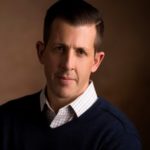Three Things I Taught My Kids About True Leadership
Podcast: Play in new window | Download

True wealth is tied at the hips with true leadership. Leadership is the single differentiator that separates the highly successful from the rest of the crowd. We may have heard and read many things about leadership, but what constitutes true leadership? In this episode, Patrick Donohoe gives us the three things he taught his kids that will have an impact, not only on individual success but also on the welfare and advancement of society and the economy. Whether in politics or business, there is a universal need for true leadership. What can we change in the way we teach the next generation for it to truly become a leader’s pool? These three lessons seem like a no-brainer, but if they were, we would have been applying them to a much greater extent today. Listen in and learn more about true leadership that drives the creation of true wealth.
—
Watch the episode here:
Listen to the podcast here:
Three Things I Taught My Kids About True Leadership
Thank you for tuning in to this episode. It’s going to be a short one, but it’s going to be packed. The title is Three Things I Taught My Kids, that I believe would change society, personal wealth, and happiness for the better, but significantly alter the economy. It’s going to be awesome. I’m excited to share it. Before I get into that, we’ve had some cool guests on a couple of episodes. Andy Tanner, a good buddy of mine has been on a few times before. My buddy, Jason Hartman. Jason’s another incredible guy. I feel fortunate with some of the relationships I have. Check him out as well as he has the Creating Wealth Show, JasonHartman.com, and a lot of other resources on there. One last thing before I get into what I prepared.
There’s a group that’s local here that I wanted you to know about. They’re called Operation Underground Railroad. I’ve supported and donated to them for a couple of years. I believe that there is an increase in what they’re trying to fight because of the shutdown in the quarantine. It’s the sex slave business. This may be shocking to some of you, but this is happening. This is something that’s real and it’s horrific. Part of me wished I had never known about it but I’m glad I do. I’m glad that there are guys like Tim Ballard, who leads Operation Underground Railroad, who is former Special Forces and Intelligence Operative for the United States government. He stepped away from that position and career to pursue this mission. It’s desperately needed, especially now because kids are home and they’re vulnerable. Technology is being used to exploit people that don’t have a voice. If there’s anything you can do financially is great, but I would say your awareness and support of it and spreading the word will make a difference.
There’s a documentary that talks about their mission. There’s a full-length film with Jim Caviezel, who played Count of Monte Cristo, as well as Christ in The Passion. It’s going to be great. It’s coming out soon. Be aware of it and let’s step up. There are many kids around the world that don’t have a voice. It’s incredibly terrible what’s going on with this industry. I’m not going to say more about it, but please get involved and make a difference.
The main variable that distinguishes the highly successful from the employee and the self-employed specialist is leadership. Share on XThe Formal Education Trap
Let me get to what I taught my kids. The first thing I taught them was formal education is a trap. That got me in a little bit of trouble. It’s not the first time I’ve talked to them about it, but it got me into trouble because my eldest daughter is fifteen. She used it against me because she didn’t necessarily do well in one subject in school. She’s like, “You don’t care about that anyway. You say formal education is a trap or school doesn’t mean anything.” I will talk about that but there are some things and some context that needs to be created for you to fully understand that.
The reason I believe formal education is a trap, number one, it’s because the majority of our society believes the same thing. There are outliers and there are more outliers in large part coming from this disruption caused by COVID-19. The majority of us are wired to look at the world, business, our job, career and relationship based on how influential our education system has been in our life. In the educational system, we’re taught the individual is the most important. There are arguments that are about individual rights and so forth. I won’t get into that but when it comes to achievement, success, job employment, individual effort is one of the most limiting things in the world.
I’ll get to that but the idea of the individual being the most important individual achievement and effort, it’s so limiting, one dimensional, single-dimensional. You always have this rat trap, this rat race that you never get out of until you become something different from a mindset standpoint. I would say that the best book I’ve read that teaches the different mentalities of people is the CASHFLOW Quadrant by Robert Kiyosaki. He explains that there are essentially four ways to make money. There are four types of people out there when it comes to commerce. First is the employee. Second is the self-employed specialist. The third is the business owner and the fourth is the investor who invests in businesses. The education system and how I believe how it’s differentiated the employee and the self-employed specialist, it’s a trap because financially you never get ahead. You equate your success and money to individual effort.

True Leadership: The idea that individual achievement is the most important is so limiting and one-dimensional.
What I explained to my kids was the main factor, variable that distinguishes the business owner investor, the highly successful to the employee and self-employed specialist, meaning a lawyer, a doctor, someone that has more education, is leadership. That is the main variable I believe. Good leadership, I’m not talking about manager’s management. I’m talking about true leadership. Leadership is it’s in contrast, in complete conflict to the individual. Leadership, a true leader, which I believe big business owners those that are able to take a team and carry a team to more and more achievement, that’s the multidimensional impact. You’re able to have a division of labor, specialization. It’s profound. That’s the second piece is this idea of leadership.
The Differentiator Of Success
The second thing I taught them is that leadership, the differentiator of success. The leader does not look after himself. He understands that by looking out for others whether it’s employees, customers, or clients, the better it is for himself. Instead of looking out for yourself, because that’s what most important, that’s how we’re wired and that being the best thing is looking at others. Serving them whether it’s clients or employees. How I got this to sink in with them is I went through what the average employee, an average specialist, and business owner that’s been in business for over ten years makes. For an employee standpoint, this was sobering for them because I talked about the average college graduate and what salary they make. We went line-by-line what’s taken out of a paycheck before they even get money in the bank account.
We went through federal, state taxes and what that means. We went through FICA and most people don’t even know what FICA stands for. We went through how there are two sides of FICA. You have 7.5%, 7.6% that is paid by the employee, but then you have 7.5%, 7.6% is paid by the employer, which could have been an increase in salary and pay. There’s almost 16% there. That’s what hits the bank account. You have health insurance, retirement contributions, housing, and transportation. You go all the list of the necessary expenses to live in modern society. The amount of money that went home was little. They were incredibly surprised by that because a lot of it adds up.
Leaders don't look after themselves. They understand that what's best for others is what's best for themselves. Share on XWe went through the specialist. We use an example of what the average doctor gets paid and also the average attorney. We line out of the same thing and the amount of money they walked home with after their increase of housing, transportation, entertainment and food expenses. It was similar and they couldn’t believe it. They looked at how many years it took to go to medical school, to go to law school, how much more effort there, individual effort. We got into the business owner and the idea of a business owner understanding specialization, but also understanding how to lead. True leadership, there are several variables. There are amount of reference some books and material that have inspired me to be a better leader because I failed over and over again, and continue to fail in certain elements.
I connect anything that I’ve done that’s of significance to the understanding and implementation of that understanding when it comes to leadership. The idea is leaders don’t look after themselves. Leaders understand that what’s best for themselves is what’s best for others. That right there creates a connection where people are willing to work as a team to accomplish a certain end. This is multidimensional success and output. The individual only has so much time and energy during the day. It’s typically used with themselves in mind, but when you start to identify that to accomplish something amazing, big, a huge project and achievement, doing it individually is not possible. There are only many hours, time and energy during the day. The example I gave my kids is based on a documentary that we saw.
For those of you who have kids, you’ve probably seen Frozen and Frozen 2. Frozen 2 made $1.5 billion, believe it or not. I can’t remember how much Frozen made. Disney is an incredible company and we won’t get into that but there’s a documentary about the making of Frozen 2. It’s a four-year project, 400 employees associated with this specific project, but it essentially films them onsite. It’s profound how leadership principles are extracted from those examples where you have many different specialists, whether it’s graphic design, environment, and storytelling. Four hundred people accomplishing something significant with individualistically creative people, there’s a necessity for not only leadership but also structure systems and good business. It’s amazing.

True Leadership: Anybody can be a leader, and leadership is highly lacking in our society now.
The Failure Myth
This goes into my third piece, which is a failure. Failure is a myth. I’ll summarize, the first thing is formal education is a trap. Second thing, the number one differentiator of success between ENS and BNI is leadership. The third thing is failure is a myth, and it’s only important if you want to be mediocre. In this Frozen 2 documentary, it was incredible. First off, criticism feedback is one of the quintessential components of a successful film. Other teams are working on other films, other projects that come in and scrutinize and give feedback on, “I don’t understand this. I don’t get this. Why are you doing that?” The idea of getting feedback about what in normal terms in society is, you did wrong or you failed that. For them, it was essential to improvement. It was essential to have the final product and the success that they wanted.
That was the vision. That was their mission from the beginning with this film. You look at the ability to rally a team to get feedback and in the end, a lot of the artists who spent months sometimes over a year on a certain piece of the film, song or element, and it was cut. Although it made an impact, they understood that as long as the film was successful and impacted people, they didn’t care. It hit me. A strong and impactful team, that’s what they believe. Their individual effort is important. It’s part of it. Their skillset is part of it. At the same time, it does not stand in front of the primary reason for being in a company, in a team with a mission and a vision. That’s what I’ll end with. The function of leadership isn’t reserved for a business owner. Anybody can be a leader and I believe leadership is highly lacking in our society now. It’s lacking in business and politics.
True leadership, there are some principles there that will not only change your life. It will change society and economy. I would say for those who are reading The Wealth Standard, our mission is about financial freedom, but true wealth is about living a fulfilling life. That requires, in my opinion, a relationship and benefiting the lives of others. There’s a symbiotic relationship. I would say it’s tied at the hip where true wealth requires the fundamentals of leadership. Whether you’re an employee or self-employed, you can incorporate leadership principles with clients, customers, strangers on the street, neighbors in your backyard. These are their fundamental things where we can build relationships by looking out for others within the construct of a team, a business. When you’re able to articulate a mission, create a vision that shows your team where you’re going and inspire them, there’s the magic behind that.
When people felt they’re cared for when they feel they’re taken care of and you have their best interests in mind and have their back, it’s magic what happens. I look at examples everywhere and I’m inspired by it. How I’ve learned about some of the principles of leadership are by books, podcasts, documentaries, but I’ll list a few things that I would encourage you to look into because leadership, it’s essential. These are principles. These are pieces of information that are not taught in formal education but are essential for success. The first one is Simon Sinek. I talked about Simon Sinek before. He has a new book called The Infinite Game, which is amazing. He also wrote a book called Leaders Eat Last, Find Your Why and his initial book, Start With Why.
Jocko Willink, I started listening to him. He’s a former Navy SEAL Commander. He has a big neck, bald, deep voice, intimidating. He’s written a lot of books on leadership. He has a company that does leadership training and coaching. He wrote Extreme Ownership and The Dichotomy of Leadership. He also wrote kids’ books. I believe that they were because of the Wimpy Kid book series. He wrote Way of the Warrior Kid book series. I’ve read them with my son, Jack. The Wimpy Kid books and movies are banned from our house. That’s also awesome. Jim Collins’ Good to Great. He’s a classic. Deepak Chopra, I love Deepak. He’s such a deep thinker, but he has a book that he wrote over a decade ago called The Soul of Leadership, which is good.
Right now is the perfect environment to redefine the focus for your life and professional career. A good friend of mine, Mike Dillard, started a whole group to teach those that are driven, trying to reinvent their business, career and profession. He created a group called Revvenue. It’s time to take action, focus, reevaluate and find the opportunities. They’re everywhere. I hope that you find something that inspires you and you use that to make a difference in somebody else’s life. There may not be commerce and transaction, but believe me, that’s how the world goes round. The more you do it, the more it’s going to come back.
Thank you so much for the support. If you like this, go check us out on iTunes and give us a good rating. That always helps. Operation Underground Railroad is something I haven’t talked about before on the show but specifically with Wayfair, and a lot of other things that are happening because of the shutdown, there are many defenseless kids out there. They’re being exploited and taken advantage of. If there’s anything you can do, Operation Underground Railroad, they’re all over Facebook, Instagram. Also, Tim Ballard is the leader of that nonprofit. Follow him as well. You’re amazing. Go out and create some value. Bye.
Important Links:
- Andy Tanner – Previous episode
- Jason Hartman – Previous episode
- JasonHartman.com
- Operation Underground Railroad
- CASHFLOW Quadrant
- The Infinite Game
- Leaders Eat Last
- Find Your Why
- Start With Why
- Extreme Ownership
- The Dichotomy of Leadership
- Wimpy Kid
- Way of the Warrior Kid
- Good to Great
- The Soul of Leadership
- Revvenue
- iTunes – The Wealth Standard
- Facebook – Operation Underground Railroad
- Instagram – Operation Underground Railroad
- Tim Ballard – Instagram
About Patrick Donohoe
 President and CEO, dedicated to challenging Wall Street with Personal Financial strategies and systems that work.
President and CEO, dedicated to challenging Wall Street with Personal Financial strategies and systems that work.
Recognized for creating virtual, online environments where individuals, families, business owners, and investors can learn about financial strategies and techniques not taught on Wall Street.
Love the show? Subscribe, rate, review, and share!
















